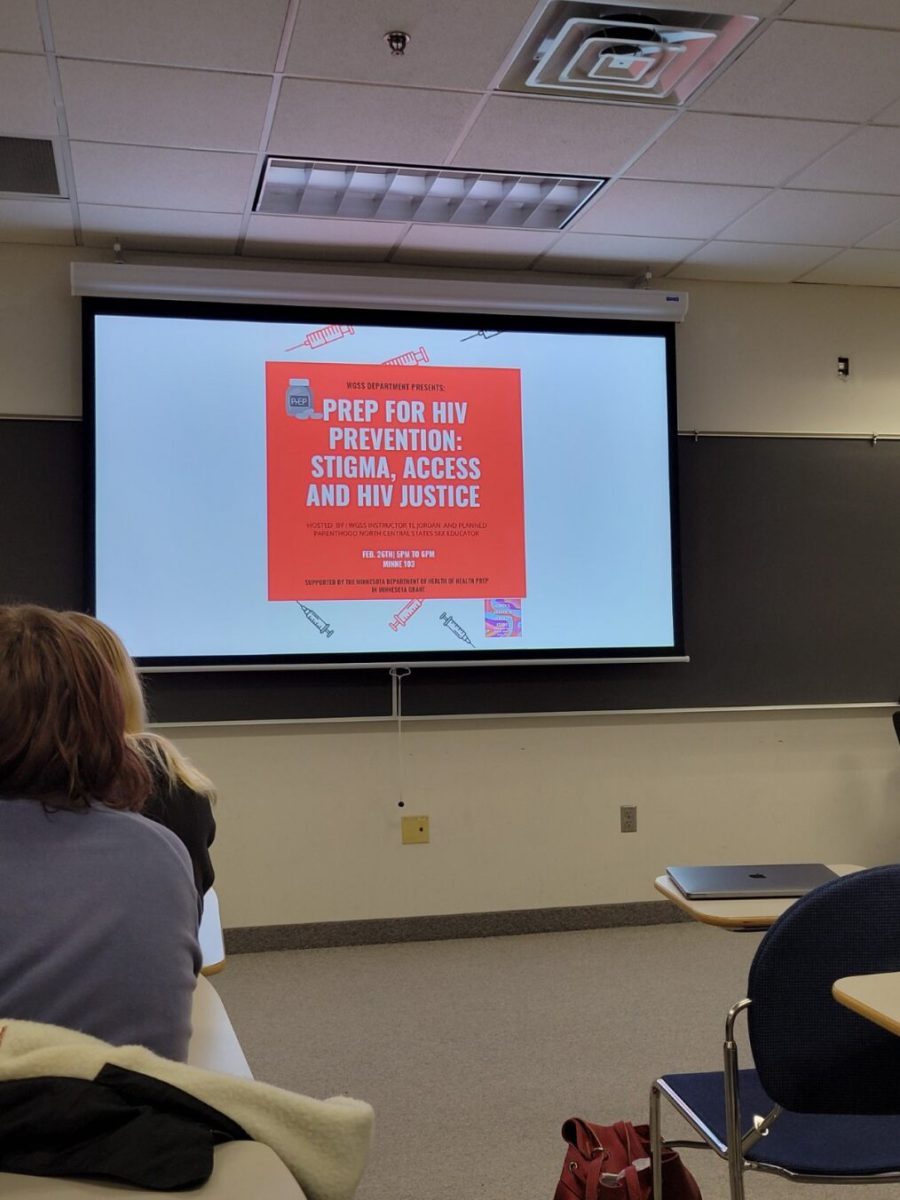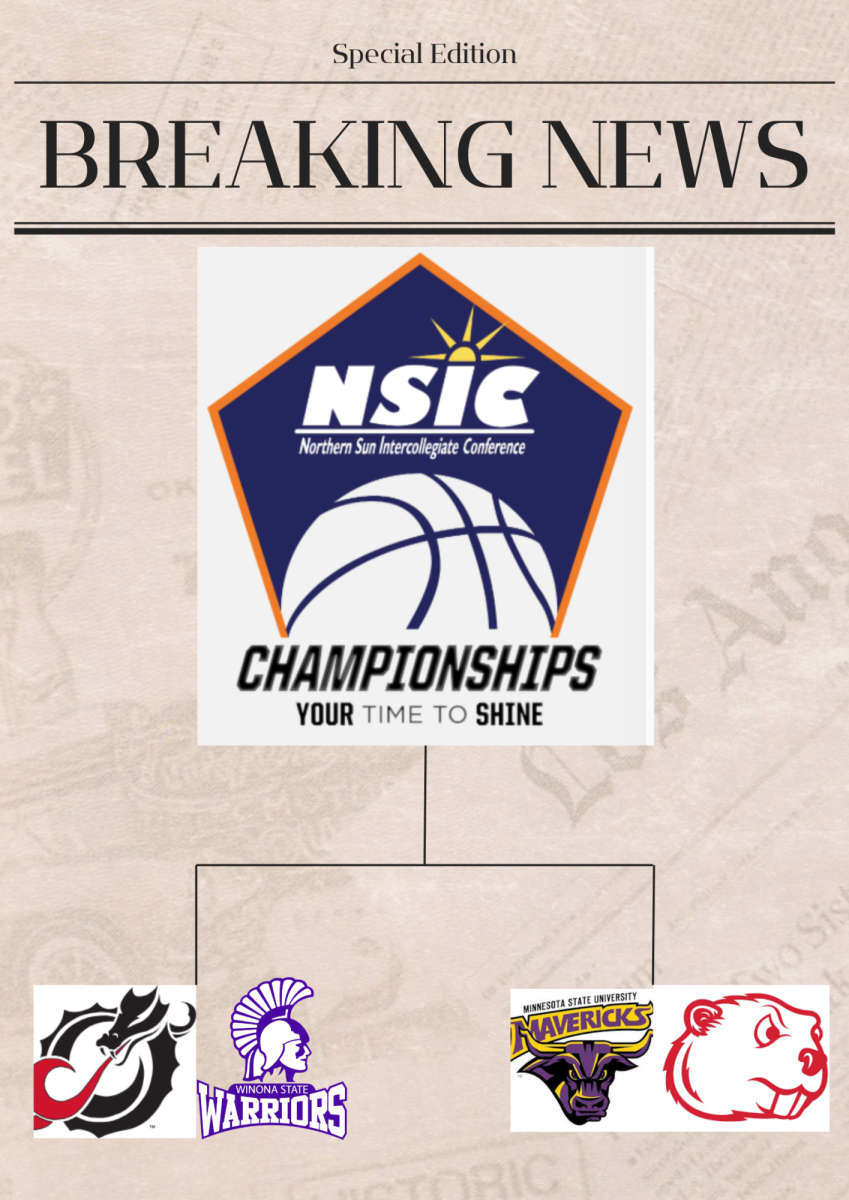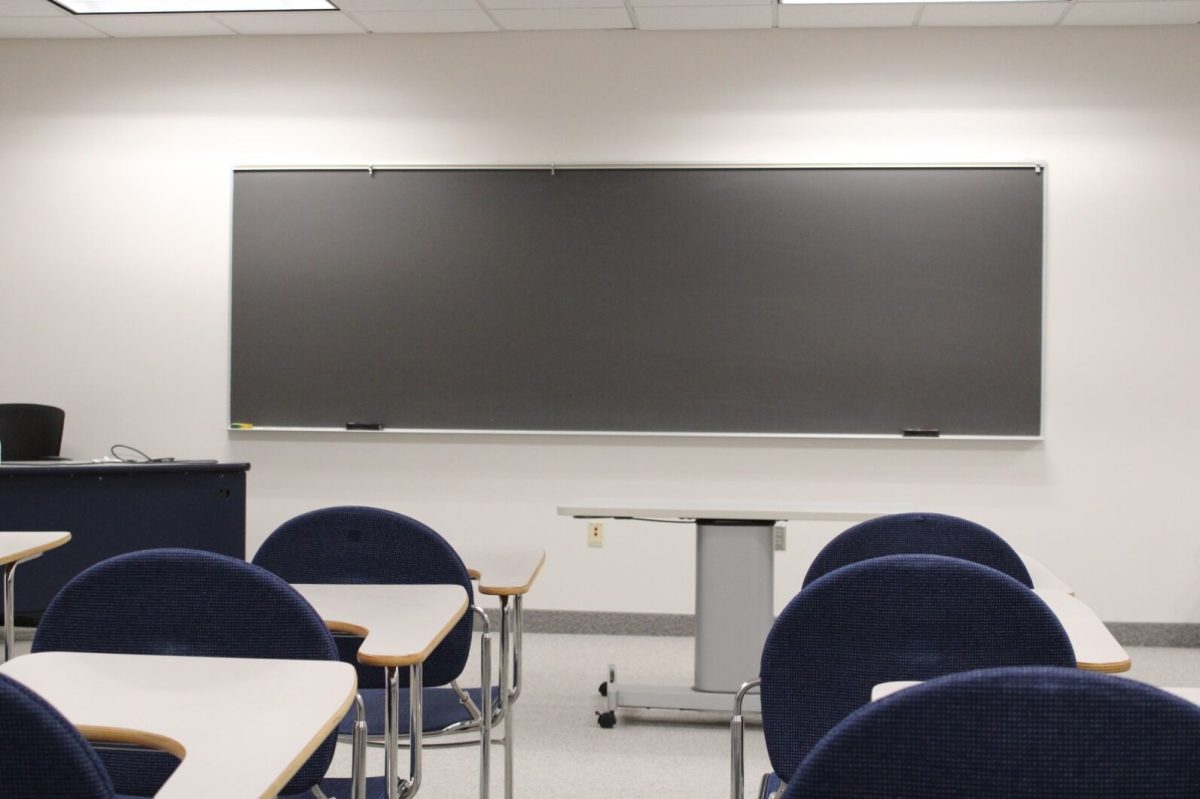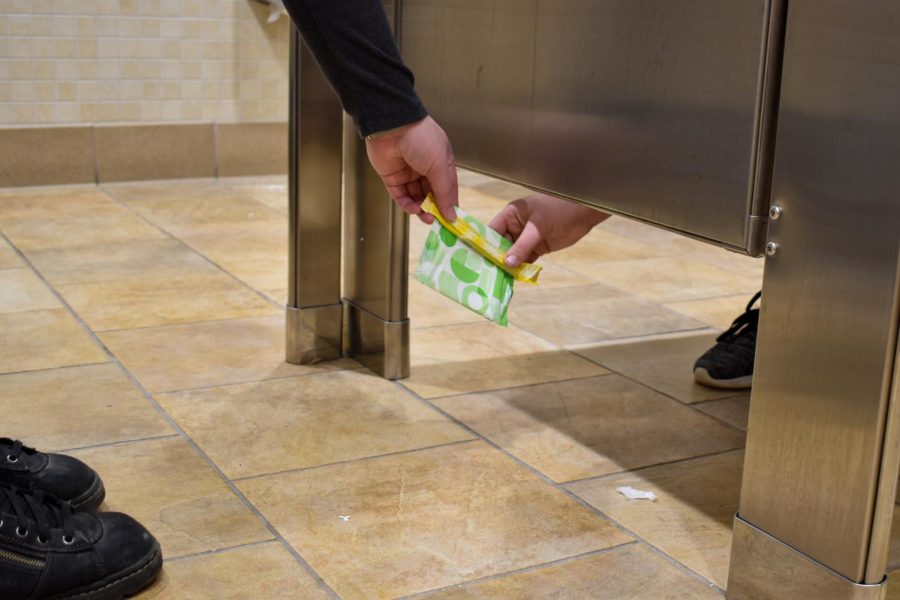Lack of campus period products are cramping students’ styles
Students at Winona State University have been noticing a lack of period products available on campus. One big advocate for implementing more supplies for students has been the Student Senate body.
February 1, 2023
Minnesota has recently posed a bill that would legally require K-12 state schools to provide period products for their students. Specifically, this bill is asking to increase the cost of school operational funding by $2 per student to cover the expenses.
“If you walk into a bathroom at any school in Minnesota, you’re sure to find the standard hygiene equipment — hand soap, paper towels, toilet paper. If HF44 were to become law, you could add another item to that list: menstrual products,” the Minnesota Legislature said.
When looking at Winona State University, period products have become accessible only very recently. In 2019, Student Senate proposed placing one product dispenser to the gender-neutral bathroom next to the bookstore in Kryzsko Commons.
In 2020 Student Senate was able to implement free period product dispensers in 10 bathrooms on campus, which includes 7 female bathrooms and 3 gender neutral bathrooms.
In 2021 Student Senate implemented period product sanitary trash cans in all of the male restrooms on campus as well as the female and all gender bathrooms, providing inclusivity of the LGBTQ+ community on campus.
Denise McDowell, the Vice President for Enrollment Management & Student Life speaks on the advancement of period products on campus, saying we are getting better and better each year.
“In 2022-2023 period products are a lot more accessible than if we had this conversation in 2018 or 2019,” McDowell said.
McDowell continued, saying a big reason that these changes happened is because of Student Senate and their perseverance for change and equity.
Malorie Olson, a fourth-year majoring in social studies education and President of Student Senate spoke about Student Senate’s current plans going forward.
“Our current plan is to create a project that has longevity. That was the goal with the initial one, and I blame COVID-19 for it not going as planned. I personally need a range of period products depending on where I am at with my cycle, so we will definitely get there. But for right now, we are just looking for funding, so this is a long-lasting project,” Olson said.
Currently on campus, you can buy period products at Zane’s. The options include two kinds of small packages of thin pads or a small package of tampons. For night products, heavier flows, or other types of period products, students are forced to go off campus.
Jess Weis, a fourth-year student at Winona State University studying mass communication: public relations with a women’s, gender, and sexuality studies minor talked about her experiences getting period products.
“We either have to find someone with a car, take the long city bus transportation, or pay too much for thin pads or small tampons from Zane’s. All are horrible conclusions, which is why period products should be provided, especially on a campus like Winona State,” Weis said.
Recently, male condoms have become accessible and free to students living on-campus provided by Health Services. Scott Ellinghuysen, the Vice President for Finance & Administration/Chief Financial Officer at Winona State, talked about if there is room in Winona State’s budget to provide period products to all students.
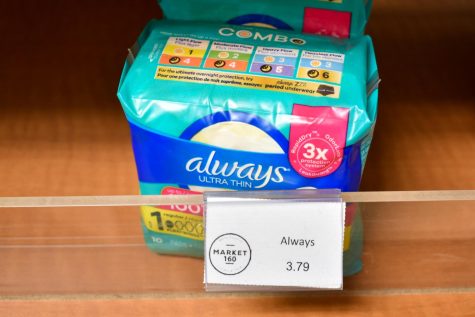
“It would all depend upon the cost of the program. All budgets at the University are very tight and any increases to a budget would have to be discussed with the area that manages that budget,” Ellinghuysen said.
When talking about providing period products for specifically on-campus students in the dorms, Sarah Olcott (the Director of Housing) spoke about Resident Assistants (RA) who choose to provide period products for their residents.
“RAs get a budget. If they choose to purchase things for their residents’ bathrooms – an RA could program something like that if they wanted to. I’m sure they couldn’t just buy the products, they would need to build a program around it,” Olcott said.
A student worker in Housing and Residence Life who wished to remain anonymous, talked about how she has met RAs who have felt pressured to buy period products for their residents, even including herself.
“Especially when I see other RAs [buying period products], which I don’t know how they are getting the funds, I thought I had to do it as well. After a while, I realized that I could not fit that into my own budget or the budget provided for me,” she said.
On average, period products are estimated to cost $200 to $300 per year per person according to Yahoo News. According to collegesimply.com, Winona State currently stands at 68 percent women to 32 percent men. If you add the number of transgender students who also have periods, the number of people in need of these products further increases.
Weis commented on her predictions about further period product accessibility, saying she has little hope for further changes.
“Unfortunately, I think Winona State has their focuses prioritized on bigger projects than giving students basic necessities. If condoms are able to be passed out on campus, period products should be,” Weis said.

